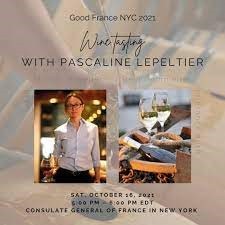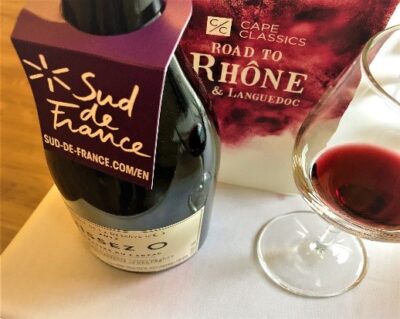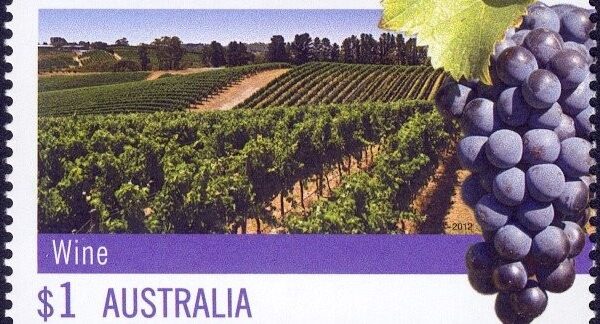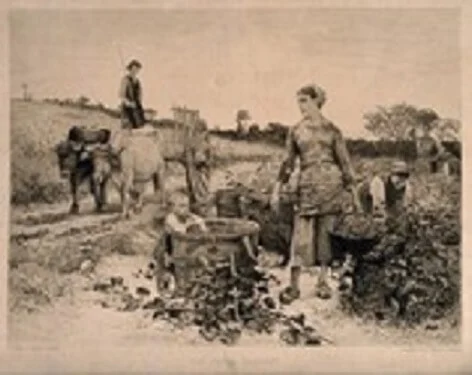It was a beautiful Sunday afternoon in Manhattan. I stood patiently standing in a long line outside the French Consulate on Fifth Avenue and was amazed at how many people were interested in learning about the wines of the Loire Valley on a Sunday afternoon in New York.

Although I queried a few of the people standing next to me about their choice of activity on this absolutely perfect weekend, I was totally unsuccessful in learning their motivation(s). Perhaps it was the opportunity to meet the celebrity sommelier Pascaline Lepeltier who has been awarded accolades for her wine and food expertise; perhaps it was the fact that the event was held at the beautiful French Consulate, or maybe the attendees just like to enjoy a glass of French wine on a weekend. Whatever the incentive, the event was terrific, the wines ran from interesting to wonderful and should the program be repeated, I will be among the first to RSVP.
Now. About the Wine
2017 Le Rocher des Violette, Montlouis-sur-Loire Petillant Original (Naturally sparkling). 100 Chenin Blanc
Xavier Weisskopf started Le Rocher des Violette in 2005. He studied winemaking in Chablis and Beune earning a degree in viticulture and oenology. His first job was with Louis Barruol at Gigondas, the producer of Chateau de Saint Cosme, where he became Chef du Cave, making four vintages during his time with the Chateau.

His love for Chenin Blanc brought him to the Saint Martine le Beau sector of Montlouis (faces Vouvray across the Loire), the area considered to be one of Touraine’s two great white wine appellations. At the time, this historic locale was under-appreciated and Weisskopf was able to acquire 22.5-acres of sacred old vines including a 10-acre parcel of mature Chenin on clay and silex over limestone soil, plus a raw 15th century stone cellar, originally a quarry dug deep into the Loire’s chalk limestone bank in Amboise (mostly planted before WW11). His mission: make wines of clarity and focus. All his vines are certified organic, allowing these precious old vines to show their authentic selves. His traditional philosophy extends to the cellar where his use of older barrels shows his pursuit of the true Chenin experience.
Vines are pruned for low yields of 30-35 hectoliters per hectare (the old vines give about 25 hs/ha) and harvests are conducted by hand. Wood barrels are selected over steel for the exchange of oxygen offered by wood that carefully preserves fruit without letting the oak intrude.

Petillant Originel
“With just five total producers, Pétillant Originel is one of the most exclusive sparkling wine designations coming out France. Today’s is an organic, old-vine, zero-manipulation vintage sparkler that will instantly expand your horizons. What an extremely rare and affordable treat!”
Ian Cauble, Master Sommelier
Petillant Originel (Pet-Nap; natural bubbling) is made using methode ancestrale where the wine is bottled before primary fermentation is finished without the addition of secondary yeasts or sugars. This ancient method produces a simpler, more rustic sparkling wine that is traditionally cloudy, unfiltered and may be capped and not corked.
The Petillant Originel process is a specific designation created by the Montlouis sur Loire vignerons in 2007. To qualify for the designation the wine must be made WITHOUT the addition of yeast and WITHOUT the addition of liqueur de tirage (a dose of sugar added at the time of bottling to give the ongoing fermentation a boost) or liquer d’expedition (sugar added at the moment of disgorgement). The wine MUST be made purely with the original grapes, their sugars and the indigenous years.
The 2017 Le Rocher des Violette Petillant original was certified organic with 100 percent Chenin Blanc grown on clay-limestone from 40+ year old vines. One-third of the wine is fermented in older wood vats, 2/3 in stainless steel tanks. It is bottled with native yeasts, zero dosage.
Its pale yellow with light green hue is highlighted by soft bubbles to delight the eye; the nose detects melon, yellow apple, light citrus, lemon grass, and ginger. The palate finds flower notes and brioche, enhanced by hints of honey. Off dry with high acidity, this delicious experience pairs well with salmon, poultry, mild and soft cheese(s).
Dr. Elinor Garely. This copyright article, including photos, may not be reproduced without written permission from the author.





